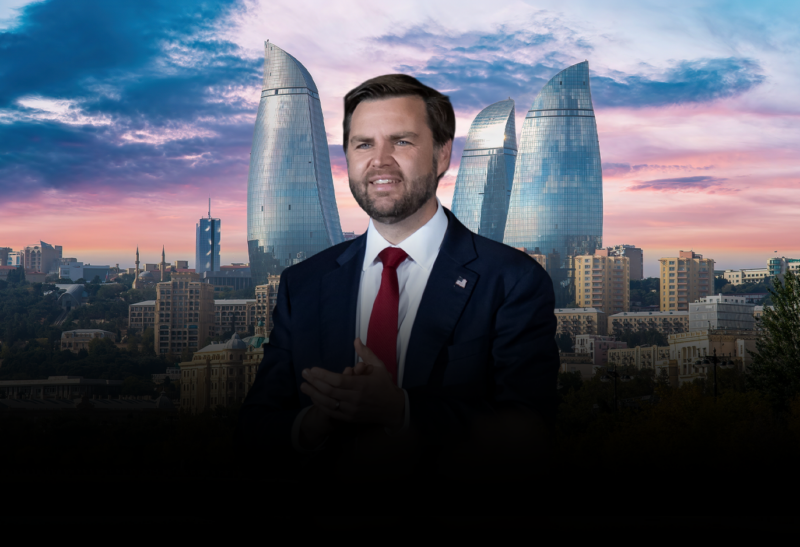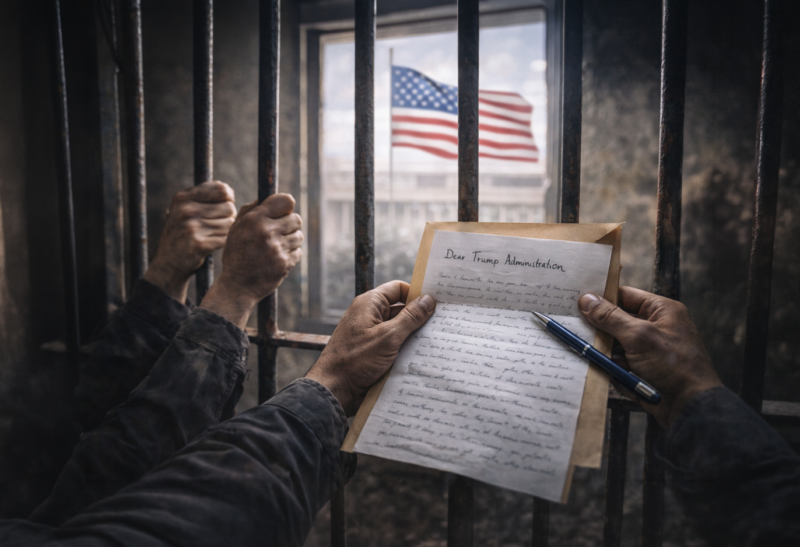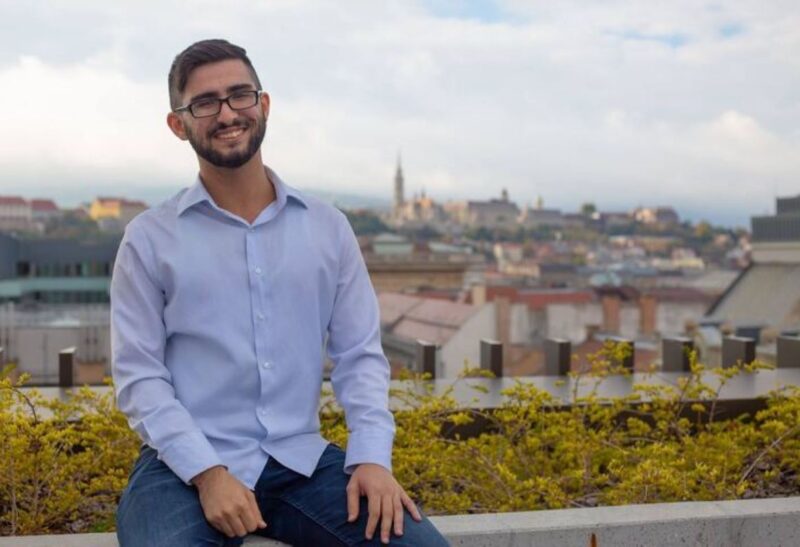How did the recent extraordinary presidential elections in Azerbaijan go and what was it remembered for?
In 2024, it will be a year of elections in more than 70 countries. That is, this year more than half of the world’s population will elect people who decide the fate of their countries. So, at the very beginning of the year, the people of Azerbaijan got the opportunity to exercise their right to vote in early presidential elections.
The current presidential elections became the first where Ilham Aliyev, who has already become the president of Azerbaijan for the fifth time, according to the CEC report, gained more than 90%, specifically 92.12% of the votes. According to the CEC information, in 2018, 86.02% of voters voted for him, in 2013 – 84.54%, in 2008 – 88.73%, and in 2003 – 76.84%.
The relatively low figures for Aliyev in the 2003 and 2013 elections are explained by the fact that the opposition also participated in the pre-election race in those years. In the 2003 elections, Aliyev’s opponents from the opposition were Isa Gambar, chairman of the Musavat party, Etibar Mammadov, leader of the Party of National Independence of Azerbaijan, and Lala Shovkat Hajiyeva, chairwoman of the Liberal Party. And in 2013, the opposition nominated the chairman of the National Council of Democratic Forces, Jamil Hasanli, as their single candidate.
This year, the opposition refused to participate in the elections. The parties of the Popular Front of Azerbaijan and “Musavat” explained this by the absence of equal competitive opportunities and ongoing political repressions.

“For a long time, there has been no democratic environment in the country that would allow for democratic elections. With more than 200 political prisoners, the right to assembly is practically eliminated, and freedom of speech and expression is persecuted. Naturally, under such conditions and in the absence of equal political competition, conducting any democratic elections is simply impossible,” said Arif Hajili, the leader of the Musavat Party, in an interview with Meydan TV after the elections. “In addition, one of the most serious factors important for the democratic nature of elections is the legislative framework. Azerbaijan’s Electoral Code does not allow for democratic elections. I want to address just one point – the procedure for forming electoral commissions and the fact that electoral commissions are fully under the control of the ruling party, the ruling political force. This alone excludes the democratic nature of these elections.“
Election violations: obstacles to the media, “carousel” voting, mass stuffing.
Like in previous elections, on February 7th, there were also numerous violations observed. However, their basis was laid long before election day – when new laws on media and political parties were adopted.

For example, electoral commissions took advantage of the new legislation that requires media entities to be registered in a single registry. In particular, independent journalist Lida Abbasli was not allowed to film at the 36th polling station of the 8th electoral district (school No. 276) on election day. Abbasli told Meydan TV that she had entered the polling station without any issues initially, but later, when it was discovered that she was not an observer but a journalist, she was kicked out:
“At first, a man approached and asked who I was. I replied that I was a journalist and had come to cover the electoral process. Then he called a woman, and without even asking which media outlet I was from, they said that I couldn’t film and chased me away from the polling station.”
According to Lida, no matter how much she tried to explain herself, nobody listened to her:
“I said that journalists should not need permission to film, but they paid no attention to my words. In the end, I was forced to continue filming outside, in front of the entrance to the polling station. And I couldn’t film anything inside.”
Media expert and lawyer Alesker Mamedli described the removal of the journalist from the polling station as unlawful and unjustified.
“The participation of the media in elections is regulated by the Electoral Code of Azerbaijan. Articles 40.8 and 43 of the Code recognize this right for all media outlets.”
On the day of the elections, he even posted the following on his Facebook page:
“There are reports that today, at some polling stations, journalists were obstructed from filming, stating that they are ‘not registered in the media registry’ and therefore cannot film.”
Although the CEC Chairman Mazahir Panahov, addressing journalists on election day, urged them to boldly speak up about any problems they encounter, such issues persisted.
The Turan news agency writes that at the 19th polling station of the Narimanov-Nizami-Binagadi electoral district No. 18, journalists were prohibited from filming, citing that they are not registered in the media registry. Obstacles to the work of journalists were also encountered at the 19th polling station of the Sabunchinsky IV electoral district No. 29. In the 3rd electoral district of the Yasamal district, Turan correspondent was not allowed into polling stations 8, 13, 12, and 29.

Furthermore, on election day, access to the internet was restricted at polling stations in schools No. 310 and No. 80 in the city of Baku. According to journalists, it was impossible not only at the polling stations themselves but also in their vicinity to send videos or even voice recordings via WhatsApp. Additionally, a day before this, on February 6th, a correspondent for Meydan TV in Fizuli reported internet restrictions in that area:
“Both mobile operators I use, Nar and Bakcell, had no internet connection. Bakcell even switched to roaming mode. Approximately an hour later, the connection was restored, but the speed was very slow.”
However, Shahin Asadli, the head of the Department of Media and Public Relations at the Central Election Commission, informed Meydan TV that they had not received any complaints about internet issues.
“I contacted schools No. 310 and 80. They informed me that there are no problems with the internet. Overall, such a problem is unlikely,” said the CEC representative.
Additionally, on election day, videos spread capturing “carousel” voting and mass ballot stuffing at several polling stations. This occurred, for example, at the 3rd polling station of the 23rd district.
“What are we, as tradition dictates, witnessing here again? First and foremost, the opportunities for independent observers have been significantly narrowed,” says Mamed Mamedzade, co-founder of the Election Observation Alliance. “Members of the precinct electoral commissions believe that observers should sit in a specially designated place for them, and when they try to conduct full-fledged observation of the electoral process, they are subjected to substantial pressure. Another issue is what we specifically observed in these elections. Serious pressure was exerted on journalists. We witnessed many journalists attempting to take photos and videos, to cover violations, being expelled from the polling stations.”
Anar Mamedli, the head of the Election Monitoring and Democracy Training Center, in an interview with the “Caucasian Knot,” questioned the reliability of the voter turnout data in the elections. According to official data, nearly 5 million voters participated in the voting. However, the actual number of voters may have been around 2 million.

“This is Ilham Aliyev’s potential electorate – employees of law enforcement agencies, budgetary organizations, and employees associated with holding companies. This contingent primarily went to the polls and voted for Ilham Aliyev. But this is no more than 25-30 percent of the electorate. In conditions of political apathy in society and the absence of real competition in the elections, politically indifferent citizens had no motivation to go to the polls at all. The votes of those who did not come were used to increase the voter turnout. But even taking into account the “carousels,” the number of voters could not be 76 percent. The turnout was significantly inflated,” said Anar Mamedli to the correspondent of the “Caucasian Knot.”
Mamed Mamedzade, co-founder of the Election Observation Alliance, generally characterized the existing situation before and during the elections as an “artificial electoral atmosphere”:
“The representative of the ‘Yeni Azerbaijan’ party and 6 other candidates did not conduct a serious campaign on social media, there were no serious appeals to voters to participate in the elections, we only saw meetings of several candidates with voters, dull, sparsely attended meetings in which, unfortunately, in many cases, employees of budgetary organizations participated forcibly. There was a feeling that an artificial electoral atmosphere was being created, an illusion of an electoral race between candidates.”
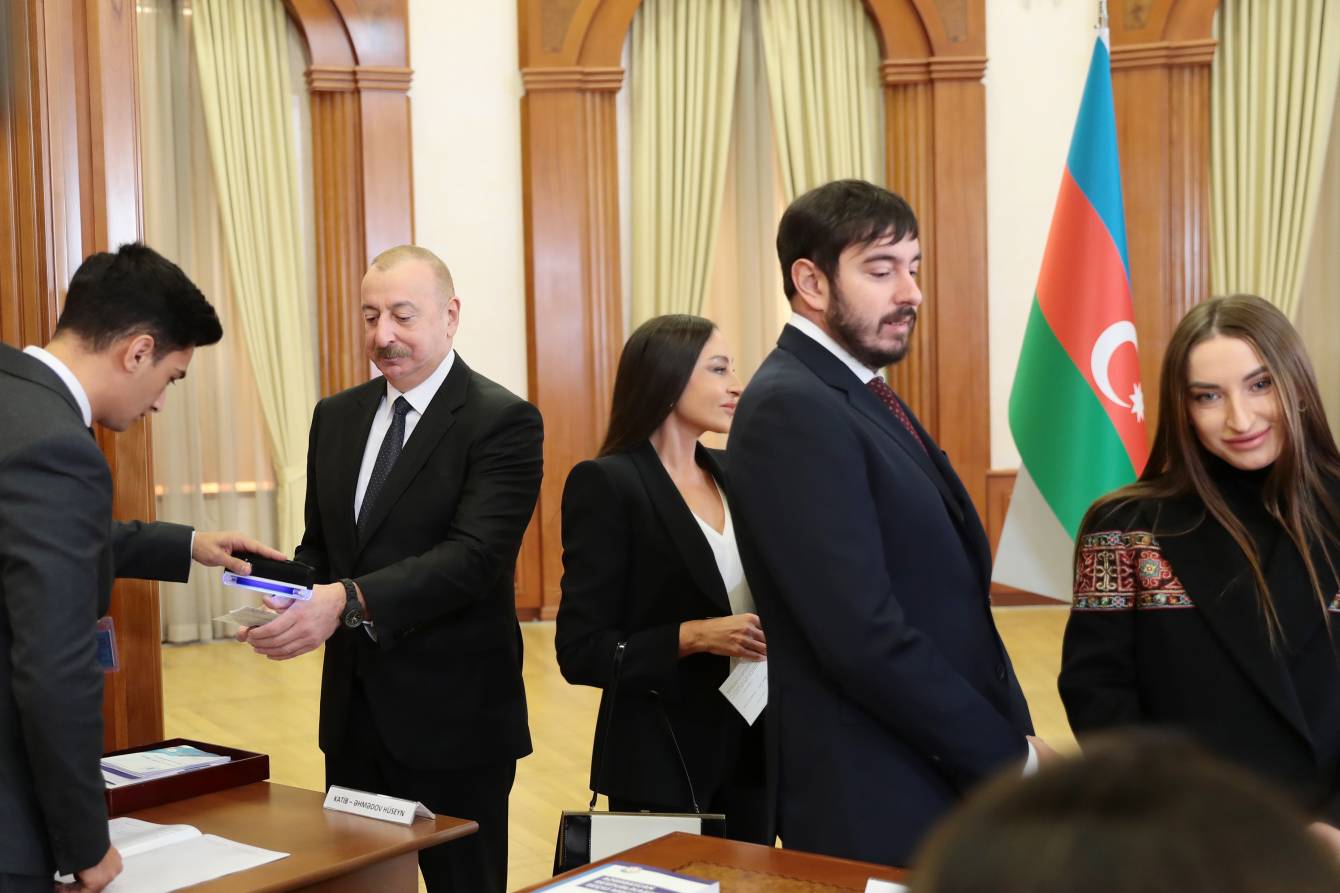
Ilham Aliyev himself, along with his family, decided to vote in Hankendi (Stepanakert). In September 2023, as a result of the Azerbaijani side’s counter-terrorism operation, the territory of Karabakh inhabited by Armenians, including Hankendi, fully came under Azerbaijan’s control. In Azerbaijani society, there is an opinion that the successes achieved in Karabakh made Ilham Aliyev an uncontested candidate. Therefore, many did not expect widespread violations in the elections.
“In these elections, it became clear that, overall, the falsifications were not aimed at ensuring that Ilham Aliyev received more votes. Falsifications were needed to ensure voter activity,” believes the deputy chairman of the Azerbaijani Popular Front Party, Seymour Haziyev. “In other words, the image of the victorious supreme commander-in-chief suffered somewhat in these elections. The population did not stand behind Ilham Aliyev and showed that they did not support him.”
Preliminary conclusion of the OSCE mission: violations in the vote counting process occurred at more than half (61) out of 113 polling stations.
One day after the elections, on February 8, the OSCE Office for Democratic Institutions and Human Rights (ODIHR) mission published its preliminary findings, which negatively assessed the vote-counting process at more than half of the polling stations (61 out of 113 stations):
“Approximately half (53) of the observed stations lacked transparency in the vote counting process. In 36 cases, not all observers could see the voter’s mark on the ballot, and in 29 cases, they could not observe the counting process. At one-fifth (26) of the stations, mission observers were unable to freely observe the vote-counting procedures. In 21 cases, the CEC did not demonstrate full cooperation with them, and in several cases, mission observers were asked to leave the polling station building due to the start of the protocol filling process. At 25 observed stations, commission members took lengthy breaks, and in 9 cases, materials were not fully visible to observers and representatives during these breaks. A copy of the protocol was properly published at less than half (43) of the observed polling stations.”

At the press conference, the head of the OSCE mission, Eoghan Murphy, emphasized that in these crucial elections for the country, none of the candidates posed a convincing challenge to the incumbent president, “and some opposition parties did not participate at all, citing the absence of adequate democratic conditions.”
“Although the preparation for the elections was effective and professional, including training of precinct commissioners, on the day of the elections, important safeguards were often ignored, and throughout the day we observed significant procedural errors. This does not meet the standards of democratic elections,” said Murphy.
However, the Parliamentary Assembly of the Commonwealth of Independent States (CIS), the Parliamentary Assembly of Turkish-Speaking Countries, and the Organization of Islamic Cooperation (OIC) stated that the elections complied with international standards, conventions on human rights, and the recognition of political and civil rights.
The Chairman of the CIS Parliamentary Assembly, Jaqip Asanov, said:
“Our mission was very pleased with the fair and transparent organization of the electoral process and the proper conduct of open and closed voting.”
The US Embassy in Azerbaijan noted the lack of real competition in the elections and stated that it shares the position and concerns of the OSCE:
“In its Constitution and its international commitments, Azerbaijan expresses its commitment to supporting fundamental freedoms and democratic processes,” reminded the embassy, urging the Azerbaijani government to fulfill these commitments as well as previous and future OSCE recommendations.
The UK Foreign Office also commented on the February 7 elections, stating that they are also concerned about several issues related to conducting elections under restrictions and the absence of real political alternatives:
“Serious violations were observed, some of which contradict the 1990 Copenhagen Document, which outlines a range of human rights and fundamental freedoms.”
The reaction of local organizations
The Center for Election Monitoring and Democracy Training (CEMD) stated that on the day of the elections, minor flaws were recorded in the organization of polling stations and preparation for voting, while violations during the voting and vote counting process have become traditional:
“Such violations include cases of individuals participating in voting whose names were absent from the voter list, group mobilization of citizens for voting, and interference in the electoral process by local executive structures. At some polling stations, there were cases of the same person voting multiple times, violating the secrecy of the vote. Also, on the day of the elections, pressure on observers and journalists was recorded at some polling stations due to the failure of members of precinct election commissions to adhere to the principles of transparency and openness in voting.”

The Center for Election Monitoring and Democracy Training (CEMD) stated that the postponement of the election date by 14 months ahead made it difficult for all stakeholders to participate in the electoral process, including political parties and individuals aspiring to run for president, as well as the activities of civil society organizations and international organizations observing the elections:
“Despite the extraordinary presidential elections on February 7 taking place three years after the last parliamentary elections, during this period the Azerbaijani authorities showed no political will to implement the recommendations of local and international observers on improving electoral legislation and practices. Restrictions on freedom of expression, assembly, and association were not lifted before the elections, and the number of politically motivated arrests increased. Over the past year, the number of political parties halved, restrictions on the activities of independent civil society organizations and independent media intensified, as well as political persecution of journalists and activists. Thus, a conducive democratic environment for active participation in the elections by civil society institutions and political parties was not created.”
The Center also noted that the elections were scheduled without examining the corresponding political needs in the country, without adhering to the principle of periodicity of elections, and without prior notification of all socio-political parties:
“In recent years, political stagnation in the country has deepened even further, the number of political parties halved, restrictions on the activities of independent civil society organizations and independent media intensified, as well as persecution of journalists and activists. As a result, free expression of the will of citizens in the elections was not ensured, as active participation in the elections by civil society institutions and political parties was impossible.”
In turn, the Election Observation Alliance (EOA) in its initial statement dated February 9, stated that local and international recommendations for improving the Electoral Code, repeated for many years, remained unimplemented this time as well:
“The appointment of early elections using undemocratic amendments to the Constitution from 2016 violated the principle of periodicity of elections. In the run-up to the elections, restrictive laws and pressure on media representatives and civil society led to the suppression of human rights and freedoms, making a free and fair electoral environment impossible.”
Unlike the aforementioned organizations, the Election Monitoring Coalition “My Vote” and the Civil Society Monitoring Coalition referred to the extraordinary presidential elections on February 7 as democratic.
The statement mentions that the “My Vote” election monitoring coalition, jointly formed by three non-governmental organizations – the Society for the Protection of the Rights of Azerbaijani Women named after Dilara Aliyeva, the Azerbaijani National Chapter of the International Society for Human Rights, and “Human Rights and Law”, has been continuously monitoring the process of extraordinary presidential elections in Azerbaijan since December 2023:
“More than 500 coalition observers with representation in all regions of the republic monitored the elections in 67 electoral districts, which accounts for 53.6 percent of the total number of districts. The elections were held freely, fairly, transparently, without any interference in the voting process, amidst high voter turnout.”
Parties that did not participate in the elections: These were not real elections
The Azerbaijan Popular Front Party (APFP), which boycotted the elections, does not consider them to be genuine elections. In the party’s statement, it is stated that regardless of the results announced by the CEC, the falsification of the elections is obvious to everyone inside the country and abroad.
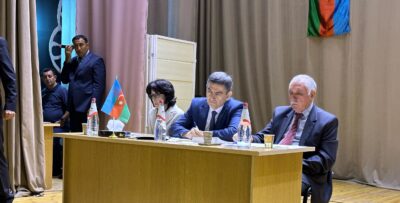
“The first factor determining the genuineness of elections is competition. APFP, the National Council, as well as the Musavat Party boycotted these elections because there were no conditions in the country for holding genuine elections. And the appointed ‘candidates’ behaved more like advocates of Ilham Aliyev. It is no coincidence that the ‘debates’ and the electoral campaign in general have generated a multitude of jokes and irony among the people. This unique behavior is even emphasized with surprise in the OSCE mission’s interim report,” the APFP statement said.
The statement notes that what happened on the day of the elections itself was also an unsuccessful attempt at imitation:
“They tried to involve people in a fake voting process solely through administrative methods. This time, there was significant pressure on individuals working in state budget organizations and even in the private sector. Those who did not participate in the elections were openly threatened with dismissal. To create the appearance of voter activity, the ‘carousel’ was further intensified, as it was used in previous elections. Numerous graphics are circulating on social media showing the place and time of voting for groups participating in this carousel.”
In a statement from another opposition party, Musavat, it is stated that the early elections were announced without any prior public discussions and without explaining the reasons:
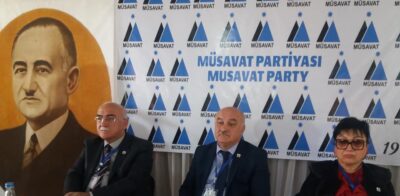
“The postponement of the election date by 1 year and 3 months and scheduling them in the winter months, when days are short and there are many holidays, as well as the fact that the electoral campaign lasted for two months while the campaigning period was only 21 days, created additional difficulties for political forces representing a real alternative to the existing government, but whose resources are limited by illegal means.
Musavat believes that the presidential decree of December 7, 2023, to postpone the election date lacks a constitutional and legal basis:
“The Constitution does not specify specific legal grounds and reasons for holding early presidential elections. This decision essentially created non-competitive conditions for Ilham Aliyev to become president for the 5th time. The creation of only 26 polling stations in the territories liberated from occupation, as well as the fact that there are only about 3400 voters among the population of these territories, refutes the claim that elections were held for the first time throughout Azerbaijan’s territory.”
The party stated that the February 7 elections were not free and fair and did not meet the country’s commitments to the UN, OSCE, and other authoritative structures:
“Musavat Party demands the cancellation of the results of these elections and the holding of new democratic elections that reflect the free will of the Azerbaijani people and comply with international standards.”
The National Council of Democratic Forces (NCDF) called the February 7 elections a “farce.”
“The legitimacy of the results of any elections depends on the ability of interested parties to participate in them and on free competition in the electoral process, equal conditions for a fair race for all parties. However, the fake presidential elections on February 7 took place without any competition between candidates, without the possibility of participation by interested parties in the electoral race, and violent bans limited freedom of action. In deciding to boycott, the NCDF, APFP, and Musavat Party also took into account the Azerbaijani people’s unwillingness to participate in such an electoral process and its distrust of this pre-election game, the results of which were known in advance,” the statement published on February 8 said.
For the Chairman of the founding council of the political platform “Third Republic,” Akif Gurbanov, the announced election results were not a surprise. According to him, in elections conducted based on an illegitimate process, the result remains unchanged and has no significance, regardless of the voting day.
“Ilham Aliyev failed to secure the support of the people even though he had complete control over absolutely everything.”
“There is no new mandate based on public trust. The stagnation of the one-man regime continues. The solution to the country’s problems is political. Therefore, we must look forward. From now on, in order to solve these problems, we as citizens must actively respond to political issues and participate in them,” believes Gurbanov.
At the same time, the Chairman of the Political Committee of the Republican Alternative Party (ReAl), Ilgar Mammadov, congratulated Ilham Aliyev:

“I congratulate you on your victory in the presidential elections, which gave a final political assessment to your role in restoring territorial integrity, and I wish you fair and equal competition with your party in the upcoming parliamentary elections, which should be an opportunity for qualitative changes in the development of democracy in the country.”
Presidential candidates Zahid Oruj, Fazil Mustafa, Gudrat Hasanquliyev, Razi Nurullayev, Elshad Musayev, and Fuad Aliyev also called Ilham Aliyev the morning after the elections and congratulated him.
Ilham Aliyev himself thanked for the support received from the people in the elections and stated that he fulfilled the promises he made when he was first elected president in 2003.
According to interviews conducted by Meydan TV a few days after the presidential elections, residents of the Azerbaijani capital asked their already re-elected president for higher wages and pensions, elimination of unemployment, improvement of the level of education, and “a minimum standard of living for citizens.”
With the support of Mediaset.

